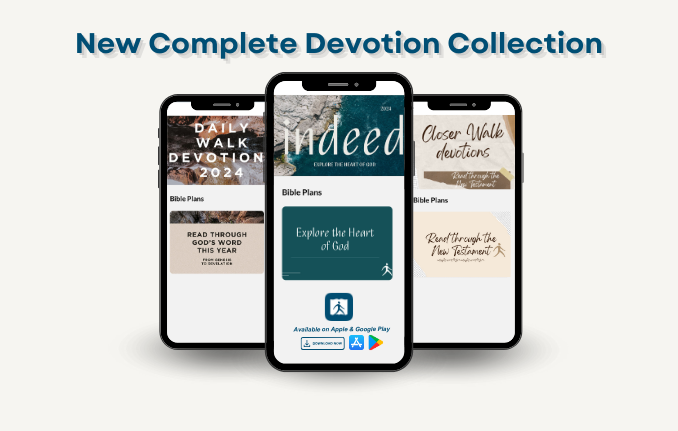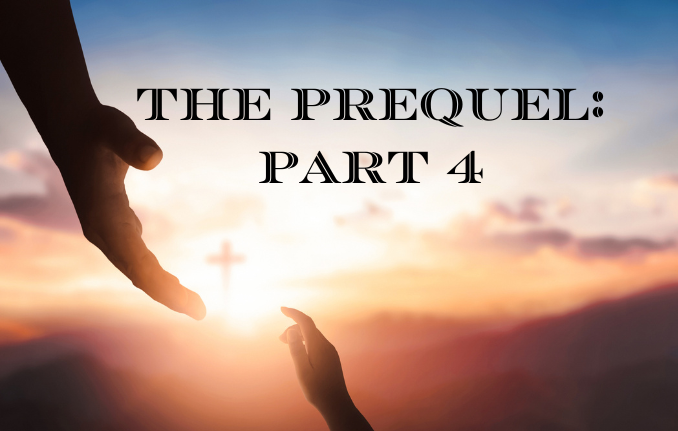
The Bible Brings Joy







But their hearts have turned. Under Joshua’s leadership, the people trusted God to lead them, and as a result, they were victorious in the battles against the vile, idol-worshiping people living in the Promised Land. But soon God’s people forgot the Lord their God (Judges 3:7)–even serving other gods, lesser gods, evil gods. As they serve other gods, their armies become weak and vulnerable. Periodically, God’s people, beaten and broken, cry out to Him. And He hears. He sends a military leader–a judge–to help them focus their hearts back on Him and to lead them to victory. But their victories are always short-lived. As soon as the judge dies, they return to rebelling against God.
This cycle continues for 400 long years. God’s people serve other gods. They’re beat up by the armies of vile nations. They cry out to Him; He hears and brings a new judge to lead them; they turn their hearts back to Him while the judge is alive, and then away from Him again after the judge dies. It’s a sad, dark time.
The book of Ruth tells the story of a young foreign woman who leaves her homeland and all that she knows to join God’s people and follow Him. Samuel, the last judge and the nation’s first prophet, loves God and calls God’s people back to Him. Since God’s people are struggling to follow Him as a heavenly King, they beg Him to give them an earthly king. God tells Samuel to anoint Saul as king. While outwardly Saul seems powerful and the people love him, he doesn’t love God or follow Him. And the nation suffers. God directs Samuel to anoint David as king. Even though he isn’t perfect, David walks closely with God as His friend. A Temple would be designed by him for God to dwell among His people. Under David, the nation thrives, and God promises that history’s ultimate King will come from his family line.
After David dies, his son Solomon succeeds him. Solomon follows God at first, building the Temple for Him that his father, David, had designed, but his heart is eventually led astray to worship other gods. The books of 1 and 2 Samuel tell of Saul and David’s reigns, and the book of 1 Kings tells about Solomon’s. King Solomon’s divided heart is a prediction of the nation’s future. Because of a family feud, after Solomon’s death the nation of Israel splits into two nations–Israel and Judah.
The books of 1 and 2 Kings and 1 and 2 Chronicles tell the stories of the two nations and their kings. Despite hundreds of years of warnings from prophets to follow God, neither nation listens, and God allows both to eventually be taken captive. Assyria takes Israel captive, absorbs it into the Assyrian nation, and it vanishes. The Babylonians invade Judah, and lead the Jewish people off to captivity in Babylon. It seems as if the people’s lack of loyalty to God has voided His promise to Abraham– that a great nation would come through him.
True to His promise, He protects His people in Babylon. After 70 years of captivity there, some people of Judah are allowed to return to the Promised Land. The books of Ezra and Nehemiah tell of the rebuilding of Jerusalem, the Promised Land’s capital city. At the same time, some of God’s people chose to remain in the Empire now known as Persia, But God protects his people there too–even raising up one of his followers, Esther, to become queen. For the next 400 years God’s prophets don’t speak, but God is working as he has been all along.
From Adam and Eve to Abraham and beyond, God has been walking with his people through his captive, broken world, actively working in the lives of generation after generation–even when his people turn away from him. God promised that he wouldn’t leave his people in bondage and he has been working on a great rescue plan all those long years. Hundreds of years after his people had returned to the promised land, when his perfect time came, he put the crucial part of his rescue plan in motion. This time, he didn’t send a judge. He didn’t send a profit, He didn’t send an Earthly king,
Our bondage to sin was so big that only God Himself could fix us. And his love for us is so deep that he himself chose to rescue us. So, one night in Bethlehem, Jesus was born–a descendant of Abraham and King David, just like God had promised. He promised that He would bless all the people of the world through Himself. this child would crush the Serpent’s head and set his people free, just like he had promised. God Himself had come. He was the Savior who would rescue the world.

Reading the Scriptures can be overwhelming, whether we’re a seasoned Bible reader or we’re just getting started. While the Bible is a big and complex book, the Scriptures are designed to be accessible to all of us!
I hope you are ready to jump in, or continue, your Bible reading in the new year. As you begin your Bible reading for 2024, here are 4 tips to help maximize your reading of the Scripture.
Tip #1: Read your Bible big
Most of the books we read are different from most Bibles. Take a book from your bookshelf or book stack, open it, and compare it to the Bible. Publishers usually print the majority of Bibles with two columns of text on each page There are numbers everywhere—big numbers that are for chapters and small numbers that are verses. Your favorite novel doesn’t have all those markings.
The history of Bible publishing and how we got our modern Bible is fascinating and revealing. The modern Bible offers a very different experience than when they originally wrote it. For example, a messenger delivered the apostle Paul’s writings as letters on parchment. A group of people probably gathered to listen as someone read the letters out loud. There were no book titles. No chapters, no verses, no footnotes, no section headings, no study notes, no commentary, no leather covers… It was just a letter.
We’ve added a lot since then, especially in recent years.
Stephen Langton, Archbishop of Canterbury, did not add chapters to the Bible until the 13th century. He was writing a commentary and used chapter numbers pragmatically as a way of finding things in his reference work. Scholars added verses some 300 years later in the 16th century, again as a pragmatic tool. In the history of the Bible, these are relatively modern features.
Since then, we’ve added a lot of other features: section headings, red letters, commentary. Bible publishers have been marketing the Bible in ways that grab our interests. They do this with specialty Bibles that have supplemental materials just for the niche reader.
None of that is necessarily bad, but some Bible scholars are conflicted. How has our modern Bible has changed the way we read it?
One of the consequences of things we’ve added to the Bible is that we read in small, bite-sized bits. We read a verse here and a verse there. Section headings train our eyes to stop. This creates breaks in the text that the author may have never intended. We tend to read small sections of the Bible that correspond to a devotional guide or a Bible reading plan.
The intention of these comments is not to be critical. Walk Thru the Bible publishes Bible reading plans and devotional guides and Bibles to help you read through God’s Word.
However, we tend to read small—a few verses, maybe a section, perhaps a chapter. In reading small, we miss a lot. We miss the grand storyline of a book. Or the broader contexts of what we are reading. And the opportunity to get lost in the beauty of the Bible the way we might as if we are curling up with our favorite novel. The Bible becomes a checklist to get done rather than a story to be mesmerized with.
As you read the Bible this year, I encourage you to try something new: read big!
Bigness refers to the amount of Bible we are reading. Find time to sit down and read large portions of the Bible. Don’t read verses or sections or even chapters. Read entire books at a time. Carve out some time and read a Gospel in one sitting. Read Paul’s letters as if you had just gotten a letter from a friend. You wouldn’t put down their letter until you are finished. Or read the entire book of Ruth at one time.
It may not be practical for you do that every day. But can you find time once a week to read big? When we read complete books or movements in the Bible, we will hear and experience and love this book in different ways that invite us to truly engage with God’s Word.
Tip #2: Read your Bible in community
How good are you at keeping New Year’s resolutions? If you are like the rest of us, then you’re probably not great at them either. The majority of Resolutions made in the New Year are not kept. For many of us, they only last a few weeks. Sometimes it is just a few days.
A lot of Christians started the new year with a big dream of reading the Bible more. This may be daily or all the way through.
And for all of our good intentions, sticking with it is hard.
One of the best ways to stick with our Bible reading commitment is to read in community.
We find support systems for all sorts of new behaviors instead of going at it alone. Groups and support systems serve as a motivation and, most importantly, as accountability to stick with those new commitments. We know that motivation and accountability are important. That will increase the likelihood that we stick with hard things, especially when we don’t do them alone.
Why should Bible reading be any different? Why do we think we have to do this alone?
If we know we need some accountability and community to exercise and eat healthy and lose weight, what if we found accountability and community to read the Bible this year?
Finding a small group of people and reading on the same Bible reading schedule is a powerful motivation. You are able to hold each other accountable by discussing what you are reading together.
Walk Thru even has a Daily Walk 2024 Facebook group to learn & grow together with people all around the world- join today!
Tip #3: Pray the Scriptures
What is the most unusual thing you’ve ever had on your Christmas list? When my oldest son was around 5 years old, he added a bag of dirt as a last-minute addition to his list. He wanted some dirt to build a track for his toy trucks, so we made sure he unwrapped some dirt on Christmas morning. However, we did get some strange looks when he told people what was on his Christmas list!
As a Christ follower, I wonder sometimes how God views the kinds of requests that we make in prayer. Do my prayers sound like a spoiled kid who asks for and expects everything? Or do they sound like random requests like asking for a bag of dirt for Christmas?
“If you remain in Me and My words remain in you, ask whatever you wish, and it will be done for you.” Jesus says in John 15:7.
Our attention is usually drawn to the last part of that verse; ask whatever you wish and it will be done for you. What a remarkable promise! But Jesus qualifies that with an often overlooked “if”—if you remain in Me and My words remain in you.
How do we pray asking God what we wish for but doing so knowing that God’s Word has remained in us? The answer to this question is why I think it is important to pray the Scripture. Which is the third tip to maximize your Bible reading in the new year.
Praying the Scriptures is a longstanding discipline of using the Bible as our guide in prayer. As you read the Bible, pause and pray back to God the ideas or even the words you’ve read. It may be a prayer of thanksgiving as the Bible reminds us of God’s goodness in our life. Or it could convict us when we’ve read something; or it may request a prayer of confession.
Praying the Scriptures often requires a slow and deliberate reading of the Bible. However, it is one of the most effective ways to align our prayers with God’s will and God’s Word. If you’ve not been praying your way through the Bible, try experiencing the Scriptures through the lens of prayer in the new year.
Tip #4: Listen instead of read
There is an interesting, and perhaps too easily overlooked, instruction in 1 Timothy 4:13, “Until I come, devote yourself to the public reading of Scripture, to preaching and teaching.”
Most of us, especially in the west, have unlimited access to the Bible. From a copy of the Scriptures that we have in our homes or simply opening an app on our phone or even listening through the Word, we have the remarkable privilege of reading the Bible for ourselves.
The early church transmitted the Bible largely through public reading. During the first century, people in the Greco Roman world commonly shared literature through public reading events. The early church, two thousand years ago, hand wrote printed copies and used digital media.
Listening to the Bible is one way to add variety in our Bible reading and experience the Bible in a different way. This will allow us to return to how God’s Word was received for most early believers.
Listening to the Bible allows us to experience the Bible in new, different ways than when we read. If you’ve been reading the Bible, think about occasionally replacing or adding listening to the voice of God in His Word. There are great audio Bibles, podcasts (including Walk Thru the Bible’s Daily Walk Podcast), and mobile phone apps that will help you listen to the Bible.
The Bible changes everything—and we hope you give it a chance this year to change you.
***
by Michael Gunnin, Walk Thru the Bible’s Chief Growth Officer


Yet, it’s no secret that most of our best intentions don’t result in lasting change. Researchers vary on how long New Year’s resolutions will last, but it’s not promising. We all know it – resolutions usually don’t stick. Strava—the fitness app that is popular with cyclists and runners—deemed January 19 as “quitters day” because 19 days into the new year was when most people quit their new exercise commitments.
The desire to do something new in the new year isn’t enough for most people to stick with it.
The same is true of Bible reading. The beginning of a new year often stirs a desire within us to read through the Bible. There is no shortage of Bible reading plans that can guide you from Genesis to Revelation over the next 12 months. But more than a few of us who have wanted to read through the Bible in the new year never made it out of Genesis, or we got lost with the Israelites in the wilderness, or we got bogged down in the regulations in Leviticus.
For lots of would-be Bible readers who set out to read the Bible through in a year, one of the major reasons people give up Is the struggle to find time for daily Bible reading.
Bible reading commitments get squeezed out by all the other stuff that fills our days. Unfortunately, the new year doesn’t come with any extra minutes in the day. To find time to read the Bible, we are going to have fit it into what is probably already a schedule that is too full.
But how? How can we do it? How can we find time to read through the Bible? Here are three practical suggestions.
My 11-year-old son often asks my wife to read the Bible to him in the evening. We love that he wants to hear the Bible! But after school, homework, sports practices, and dinner, finding time to read the Bible was becoming a challenge. So, my wife found a creative, yet somewhat comical solution. After he gets in the shower, she goes in the bathroom, closes the lid to the toilet, and sits there and reads the Bible to him while he shampoos his hair. He has heard a lot of New Testament this past year from behind a shower curtain!
Maybe bathroom Bible reading isn’t your thing, but where can you repurpose some time to find Bible reading opportunities? There are great audio Bible options to listen to the Bible during your commute or while driving kids to school and activities. Can you read the Bible as you eat your breakfast or lunch? We all spend lots of time waiting—waiting for the doctor, waiting for a hair appointment, waiting for meetings, waiting for flights, waiting in pick-up lines at our kids’ schools, and more. What if we used this waiting time to read the Bible in the new year?
Time is the great equalizer. None of us can create more of it. We all have the same amount each day. But it is our choice as to how we spend our time. Why not be more intentional this year about using some of that time to read the Bible in the new year?
Some researchers suggest we spend on average more than two hours on social media sites every day. While at first that may not seem possible, 15 minutes scrolling aimlessly a few times a day can really add up. When you add in any time spent watching TV or time spent playing a game on your phone, this can be a lot of minutes that are simply lost. Most of us could easily sacrifice some time we spend on technology to use time in more productive ways.
Try making an appointment with yourself to read the Bible. Add it to your calendar. Or set an alarm at the same time every day. Treat that appointment or alarm like you would any other important meeting in your day. When we turn off the phone, shut out distractions, quiet the noise of daily life, we can focus on the most important thing in that moment—and that is spending time with our heavenly Father and His Word.
Finding time to read the Bible may not as complicated as we think. If you are looking for time to read the Bible in 2024, it may be a simple as just trimming those time wasters.
The Bible can seem daunting, overwhelming to read—especially if we are trying to read all of it. However, for most readers, it only takes 12-15 minutes per day to read the entire Bible in one year. Think about that…just 15 minutes a day and you could read through the Bible every year!
Making a seemingly small sacrifice may be all that is needed to find time to read through the Bible in 2024. Setting your alarm to wake up 15 minutes earlier or reading for 15 minutes before you go to bed or listening to the Bible on your commute is a small sacrifice. Yet this may be all that’s needed to read the whole Bible this year.
Where can you make a small sacrifice to find 15 minutes each day to read your Bible this year? We all get 1,440 minutes a day, each day. Making sure we spend 15 of them to hear from God seems like a wise choice in this new year.
When I’ve talked to people about why they don’t read the Bible, finding time to do it is an often-cited reason. And I get it. Our schedules are full. Our days are long. And the thought of trying to squeeze one more thing into our 24 hours just feels overwhelming. However, an intentional decision to be purposeful with our time—even just 15 minutes a day—means you could read the entire Bible in a year.
And that decision might be the most important thing you choose to do.
***
by Michael Gunnin
Walk Thru the Bible’s Chief Growth Officer
